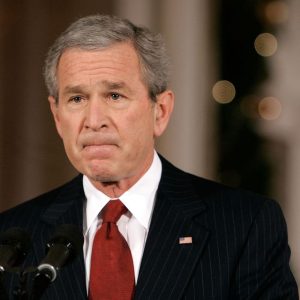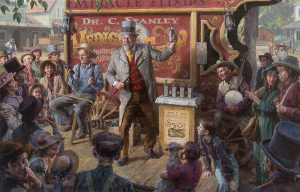I am as much of a capitalist as they come. Different people have different concepts of what capitalism means to them. Winston Churchill once defined it as “just the fulfillment of contracts”. To make my definition of it explicit: to me, capitalism is the opportunity to pursue status and business success uninhibited by bureaucratic, regulatory barriers to entry. In this article there is one question that I aim to answer: to what degree does the concept of free markets overlap with the concept of capitalism?
Nobody on the planet can make a coherent argument for zero regulation outside of the zone of theory; or for 100% free markets. When you get into the concrete real world, it falls apart and you find a reducto ad absurdum argument at just about every turn.
But let’s also ask ourselves: what is the opposite of free markets? Socialism? A planned economy? I was going to say “on the spectrum of free markets to “x”—free markets being zero regulation, I actually fall pretty far on the end of free markets, but there is no opposite to free markets. It’s free markets versus inefficient, absurd inhibitions to conducting business.
And it looks like we’ve circled back to our initial question. Are free markets and capitalism than one in the same? The answer to the question lies in another question: what is regulation?
Is regulation the constraining of business through inefficient, absurd inhibitions to conducting it? In practice, today in our society of lawlessness and pervasive corruption where almost all things political are done for show, that many work very hard to maintain, the answer is largely yes.
But now to the point: what is the optimal role of regulation in a capitalistic society (in terms of semantic definition, as I’m writing this I’m realizing Churchill’s definition might be better)?
I’ll tell you the answer: there’s two key components.
1. Versatile rules that don’t prevent disrupters from coming into industries and completely turning the status quo on it’s head (in practice in America today, this happens by entrepreneurs completely ignoring the laws, them going unenforced, and then the laws get changed to ones that are more sensible and functional in practice).
and 2. Fixing the business practices and status quos of irresponsible business leaders that hurt society.
What I’m talking about here couldn’t be further from the Rooseveltian New Deal “good of all, over the good of the individual” nonsense; what I’m talking about here is genuinely looking at something that is clearly wrong and causing harm, and using regulation to change it.
That’s what the role of regulation should be in capitalism.
Take the porn industry for example.
Those with experience know that sex is so much more about personality, evoking emotions, and turning your partner on with what you say than it is about the way in which your metaphysical bodies make contact.
In real life, as a man, having a nine inch penis isn’t going to do very much for you unless you don’t have anything else going for you whatsoever, and a man with a two inch penis can incomparably sexually satisfy a woman better than a man who that’s the biggest thing he’s got going for him.
In the porn industry, that’s the average kind of man that they presently cast, and the emphasis is 99% on how the actor and actresses’ metaphysical bodies make contact.
But the primary consumers of the porn industry are young men and teenagers who do not have experience, and it does so much more horrid damage than just minutely hurting their self-perceptions. We all feel this damage. I don’t need to conduct a study to tell you that millions of lives are lost a year because of it, many more are ruined, and that that statement far from encompasses the true nature of just how bad the damage is that the present state of the porn industry is actively causing.
What is the optimal role of regulation in capitalism?
Look at a present state of affairs in business that is hugely problematic, and fix it in such a way that is optimal for society.
This requires executive business competence in government, the emotional intelligence, maturity and generic ability to recognize these problematic states of affairs, and angling to fix them by keeping a strong concept of the moving of the trajectory they are shifting to over time, and using laws and regulations to change that trajectory and intentionally shift them in such a way that is optimal for society, and proactively maintain and improve them in accordance with new feedback after they’ve been fixed.
For the porn industry, that looks like doing a high level assessment of where the content that’s being produced is coming from, scraping the internet and getting advanced analytics on the kind of content that is presently out there, and then using laws, regulatory tools and executive expertise to mold it into something that is a lot closer to Hollywood/the movie industry—having intimate plots, dialogue, and charismatic male characters (with real life penises) that genuinely know how to really turn women on and evoke intense sexual pleasure in them, that teaches healthy concepts of sexuality to the inexperienced people who consume it, that doesn’t feel like voyerism or leave unhealthy pictoral and verbal representations regurgitating in the mind of the viewer, and that vividly captures the reality of just how intensely pleasurable good, worship-oriented, empathetic-listening, direct-communicator, high emotional intelligence sex is (and just how far below the mark what almost everybody today is doing is).
That is the optimal role of regulation in capitalism.










